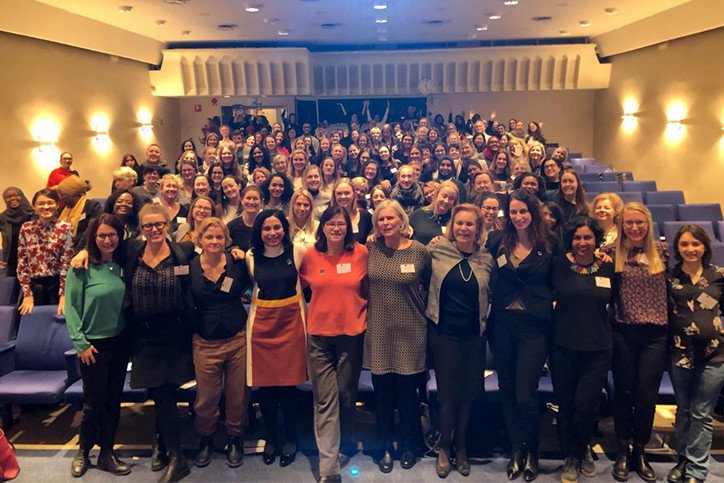Initiative to reduce the leadership gap in global health
PhD student Sara Causevic and researcher Helena Nordenstedt at the Department of Public Health Sciences and student Wiebke Mohr at the Department of Learning, Informatics, Management and Ethics started the Women in Global Health Sweden Chapter as a response to the Call to Action on Gender Equality.

What is the Women in Global Health Sweden Chapter?
This chapter aims to enhance the visibility of women working in global health in Sweden or that are coming from Sweden, intensify mutual support, advocate for gender equal representation on panels and conferences, establish mentoring programs, promote women's health and support further countries to start a WGH chapter.
We came into contact with the global organization called Women in Global Health (WGH) and got support to organize a WGH chapter in Sweden through the Swedish Institute for Global Health Transformation (SIGHT) at the Royal Swedish Academy of Sciences. WGH in Europe consists of three chapters: Germany, Sweden, and Norway.
Why did you take this initiative?
The status of women in global health calls for improvement, especially in the field of global health governance where women have not been advancing in their roles or have not been present at all. There are significant gender disparities in career choices, such that women account for up to 75% of the health workforce in many countries. Much work is needed to reach gender parity in leadership across high-level positions in Global Health, academia, non-governmental institutions and private sector institutions related to global health. If we want to achieve the Sustainable Development Goals (SDGs), we need to have a diverse, gender-balanced leadership.
Whom do you want to reach and influence?
We want to influence the global health field where we can strengthen the position of human resources, and we can connect and advocate for gender equality within UN organizations, aid and development agencies, academia, public and private sectors.
What results do you hope for?
We hope this initiative will help reduce the pay gap, leadership gap and advance women's position in Sweden, but also offer opportunities to share the lessons learned abroad.
What will happen next?
Actively spreading and distributing a recently produced booklet consisting of 100 biographies of women working in global health in Sweden and Swedish women working in global health abroad. This booklet is to help identify women for leadership positions in the field of global health, to connect existing female talent to conference circuits in Europe and worldwide and to propose them for conferences in different thematic areas where global health is also an issue enhancing multidisciplinary cooperation and knowledge transfer.
We hope to develop a database for enhanced networking and support. Also, we plan to have open discussion thematic meetings on subjects that have been identified as national priorities, for example increasing opportunities for education and training and transforming unpaid care and informal work into decent jobs. Looking globally, we are collaborating with the other two chapters in Europe to support the development of a South Eastern Europe chapter, so we are going beyond our countries and region.
